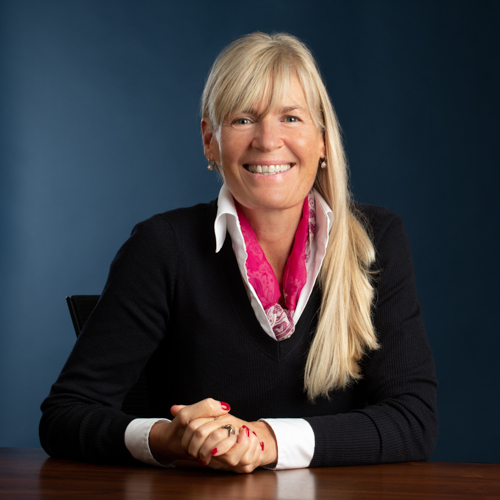|
Getting your Trinity Audio player ready...
|
Many conversations I have with young adults start with a statement like this: “I am stuck. I have no idea what I am passionate about. What if I make the wrong career choice and I am not passionate about the work?”
What I increasingly see among young adults is decision paralysis – or what I have started to call Passion Paralysis. This paralysis stems from the fear and trepidation that many young adults experience in trying to narrow down, choose and commit to one career path.
Have we inadvertently done young adults a disservice by framing career development under the banner of “find your passion” before they have even experienced and explored the world that they are entering?
Career reality check
Many young adults entering the workforce – now and in the future – will likely have more than one career during their lives. This will mean different experiences of work – roles, skills, responsibilities and environments.
They will be navigating a desire for stability and decent work with the reality of having multiple careers. They will have to undertake lifelong learning and be continuously building flexible and transferable skillsets. Within this dynamic, they will also want to experience their working lives as meaningful and purposeful.
“Have we inadvertently done young adults a disservice by framing career development under the banner of “find your passion”?
Despite these realities, the assumption persists that a meaningful or even successful career involves one specific job or career path that we are consistently passionate about.
Let’s take an experiential approach – one that encourages exploration and discovery
Our career lives are a developmental process with stages and steps, changes and the possibility of alternate paths. How we experience work within this unfolding, changing process will be interpreted and valued differently over time. In other words, our definitions of what we are passionate about and what we experience as meaningful or fulfilling will also change.
What can parents, educators, career development practitioners, employers, business leaders, coaches and counsellors do collectively to help mitigate decision – or passion – paralysis and support young adults at the start line of their careers? How can we encourage and support exploration, engagement, reflection and discovery?
Here are 12 ideas to help set young adults up for career success:
1. Start career conversations early. Conversations about careers should start long before secondary school. Foster discussion, encourage questions, and listen to how youth and young adults “define” work and careers. This provides a great deal of information and perspective on how they see the world and their expectations of and attitudes toward work and career. Work with this information.
2. Examine outdated narratives about career choices and career paths. Changes to the job market and how we work are forcing us to question the meaning of work and what a career life looks like. We need to reflect on career narratives and review career theories and strategies that we ourselves use, to determine whether they are irrelevant to younger generations.
3. Re-evaluate career development courses. Move beyond resume and skill development. Initiate discussions about societal trends, current events and issues affecting local communities and the world that have an impact on the job market and jobseekers.
4. Acknowledge that career development is not a one-size-fits-all. Career development is both highly personal and subject to multiple societal contexts including very real disparities that exist in the world. Encourage conversation and deepened awareness of personal aspirations, societal contexts and barriers to the job market.
5. Normalize career development as a life-long process. Career development is not completed at one stage of life. Our career lives require ongoing “maintenance” and can therefore benefit from accessible career development services at any stage of our working lives.
6. Broaden the conversation about skills. Skills include more than the functional skills required for a particular job. They include natural or innate skills, developing skills over the course of our lifetime, and flexible and transportable skills. Encourage regular re-evaluation of skills and expertise throughout their working lives.
7. Put goal development in perspective. Career goals are important but an overemphasis on having a goal can overshadow the fact that executing a goal requires our full participation and attention to process. By encouraging young adults to explore, we are further equipping them with experiential knowledge and perspective to create and develop realistic and flexible goals.
8. Support and encourage exploration, creativity and dreaming. This means shifting our mindset and valuing the positive benefits of exploration: self-awareness, social awareness, perspective, resilience and discovering what kinds of things we feel passionate about. Careers don’t just happen. They are also created. Exploration facilitates dreaming, imagination and creativity. Discovery reveals spaces, gaps, needs and innovative ideas.
9. Provide a variety of work and experiential opportunities. When young adults have opportunities to grow, expand and discover new potential within themselves, they experience the personal fulfillment that comes from self-expression, mastery and contribution. Encourage and provide opportunities for volunteer work, a gap-year program, extracurricular activities, community programs, apprenticeships or part-time work.
10. Create and provide a variety of relevant supports. Given that young adults will likely have more than one career, and have varying degrees of access to education, training and job opportunities, they will require different kinds of support and encouragement. We need to help them build and navigate their relationship with work and career.
11. Encourage young adults to continuously reflect on their experiences. Every work and life experience is important. What are they learning about themselves and what they are learning about the world? How can these experiences and gathered reflections be further integrated to build their next steps?
12. Be realistic AND hopeful. Young adults are heading into a workforce already affected by such factors as AI, rising unemployment, underemployment and an aging population. But they will also be working with these realities to shape their futures and the future of work. They have an active role to play in shaping their world. We must encourage them in this role to ensure that they see the future with hope.







